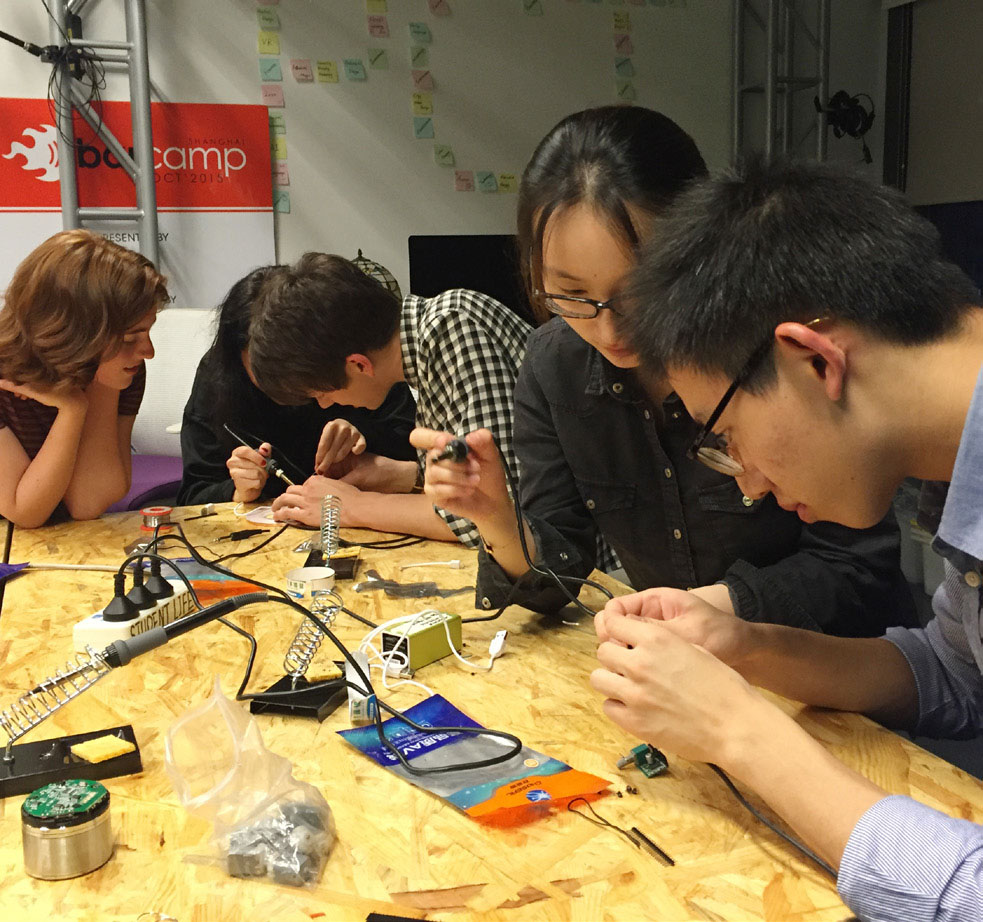The Global University model - NYU Shanghai
NYU Shanghai is a research university that includes a comprehensive four-year liberal arts and sciences education. It rests on the premise that, in the 21st century, active and substantive internationalization of learning is crucially important if we are to fulfill our commitment as educators. The city of Shanghai and the new business district of Pudong invited NYU to create the first Sino-US joint venture in higher education, in partnership with East China Normal University (ECNU), with a view to offering a possible model for the transformation of higher education in China. So NYU agreed to plant its third degree-granting campus (after New York and Abu Dhabi) in this rising global city, with the mission of uniting the intellectual resources of NYU with the multi-dimensional richness of China. From whole cloth it created a university with a highly international faculty; a university where research is peer-driven, not directed from the top down; where the curriculum is dynamically geared to our changing world; and where students learn in deep and lasting ways to become effective in a multicultural setting.
An NYU Shanghai education operates on the premise that the world of higher education has changed in the past half century as the result of three major phenomena, namely: the revolution in information and communications technology; the ‘new machine age’ in which machines do many of the tasks formerly performed by humans; and globalization. A broad and deep liberal education of the old-fashioned kind remains important, but is no longer enough. Today young people need to develop in three incredibly important areas: 1) they need to become completely at home with the tools of the new information and communications technology including developing a basic understanding of algorithmic thinking; 2) their education needs to create the conditions in which creativity, humans’ leading edge, can take place, a creativity that requires imagination and often is the outcome of connecting things that are seemingly quite disparate, hence the need for students to gain a broad range of experiences; and 3) they need to learn how to work effectively with people from different cultures in order to function optimally in our globalized world.
At NYU Shanghai half of the student body is Chinese and the other half comes from over sixty countries around the world. Non-native speakers of Chinese must learn Chinese to at least an intermediate level, and non-native speakers of English must learn to communicate effectively in spoken and written English, so that everyone graduates with bilingual capability. Students take a range of courses in social sciences, humanities, and STEAM (Science, Technology, Engineering, Arts and Math), and have the opportunity to explore new interests, so that when the time comes they can choose majors that spark their passions. Every student spends at least one semester studying elsewhere in the world.
Beyond the classroom, in what may be the most educational experience of all, every Chinese student has a non-Chinese roommate and vice versa. Our first cohort of students will graduate in 2017; many have already found jobs in China and internationally, gained admittance to top quality graduate and professional schools such as Harvard and Cambridge, and won prestigious international fellowships such as the Schwarzman Scholarship. The NYU Shanghai project presents great opportunities and great challenges, which sometimes seem almost to mirror one another. One major opportunity is, of course, redesigning a liberal arts education for the 21st century, along the lines outlined above. Moreover an institution without entrenched traditions is more likely to be able to nimbly adjust as needs surface, yet starting a new university inevitably involves missteps; it also can be challenging to convince skeptics, particularly with the demand for a more obviously instrumentalist approach. We have the opportunity to learn by doing what true multicultural effectiveness means in education, in the workplace, and in life experiences more generally, and this is just as true for faculty and staff as it is for students. We have the opportunity to make a difference in China, in both individual and institutional terms. For those of us whose professional lives have been bound up in China one way or another, it can be deeply rewarding to participate in China’s extraordinary transformation.
Joanna Waley-Cohen is the Provost for NYU Shanghai (joanna.waleycohen@nyu.edu)
